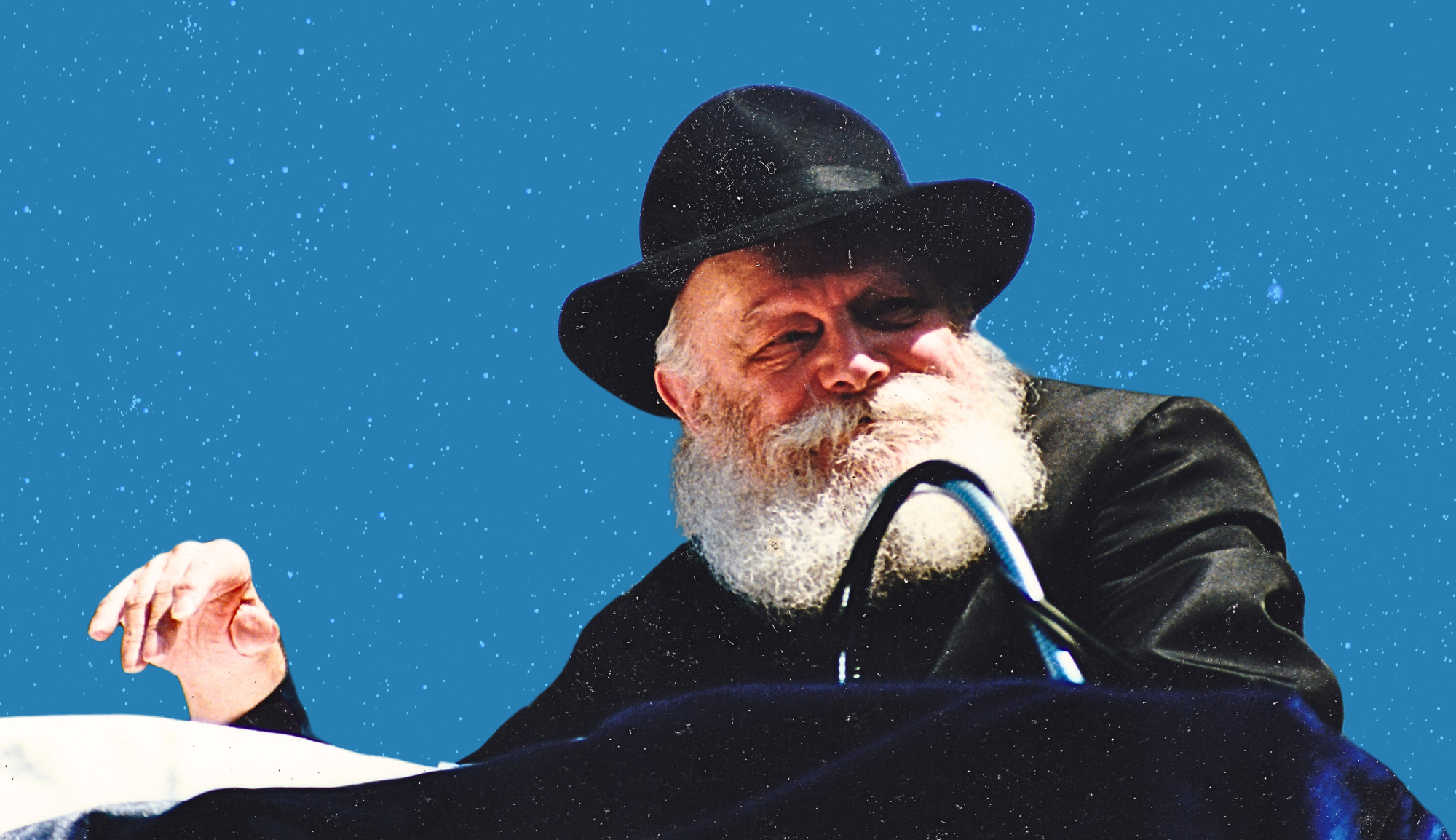The word “Rebbe” means teacher. And though Rabbi Menachem Mendel Schneerson is often hailed as a great leader of the Jewish people, he was first and foremost a prolific teacher of Torah. Some might imagine him as a sort of spiritual commander-in-chief, devising grand strategies and issuing orders from a room full of maps. The truth is both more prosaic and more profound. He wasn’t simply a great general but a great Rebbe, a masterful pedagog and mentor. His primary mode of leadership was education, and his room was filled with Torah books.
Though I was only five years old when the Rebbe passed away, and though I have had many living teachers in the intervening years, the Rebbe is my primary teacher. Back when I was 18 years old, I decided to try to get to know the Rebbe personally—to learn as much as I could from him, and about him. That decision is now nearly 18 years behind me, but it stands clearly in my memory as a defining moment of my life.
Though I was only five years old when the Rebbe passed away, and though I have had many living teachers in the intervening years, the Rebbe is my primary teacher.
Today’s Hebrew date marks the Rebbe’s 30th yahrtzeit, a fitting occasion to reflect on how his teachings resonate today with ever greater reach and ever greater relevance. Thanks to hundreds of volumes of transcribed public talks and personal letters, and thanks to hundreds of hours of recorded audio and video, it is possible for anyone to become a personal student of the Rebbe. For me, the challenge of learning Yiddish was only a bonus, and the fact that so much has already been translated and subtitled certainly smoothed the way.
This isn’t the place to attempt a survey of the breadth and depth of the Rebbe’s Torah, nor to speak of its unified methodology and rigorous theory, its tenacious practicality and supreme accessibility. I must suffice with the encapsulation of a single teaching, which the Rebbe shared on a Shabbat in 1992, just two days before suffering a stroke and losing his ability to speak. This is a teaching about collectivity, generosity, and redemption. It is also a teaching that, in retrospect, seems to encapsulate one of the defining qualities that has enabled so many to come to see the Rebbe as a personal teacher.
Making Collectivity an Unconditional Value
Characteristically, the Rebbe drew the attention of his listeners to the significance contained in the name of that week’s Torah reading, “Vayakhel”—“and he gathered.” This reading is usually combined with “Pekudei,” which means “the numbers.” Gatherings are collectives, while numbers individuate. Typically, the Rebbe said, it is important to hold the value of the collective and the value of the individual together, to understand their interplay, and to ensure they enhance one another rather than cancel each other out. But in that particular year, he noted, Vayakhel had its own portion. (The same is true of 2024.) In this distinction lies the crux of the Rebbe’s teaching: The value of the collective doesn’t doesn’t depend on the counterbalancing value of the particular. It stands as a value in its own right. The work of gathering, of revealing the collective unity that encompasses all of creation, and the entire Jewish People, is to be construed as an objective all of its own, to be privileged and completed independently and unconditionally.
Collectivity begins with a thankful turn toward God, but it is realized with a generous turn toward people.
The path to such expansive collectivity, said the Rebbe, depends on personally connecting with G-d, whose being is the ultimate universality. G-d is the One who encompasses all things and within whom all our souls are anchored.
At the outset, the Rebbe linked this teaching to the Torah portion read that week, in that particular year. But he went on to underscore its applicability every single day, from the very first moment that we open our eyes:
“Immediately when one awakes from sleep,” we are enjoined to turn to G-d and say, “modeh ani lefanechah—thankful am I, before You.” This is a moment of utter union with G-d, of thankful self-effacement within G-d’s totalizing collectivity. We don’t say “I am thankful,” but “thankful am I.” It is not the self that is primary, nor even the fact that we find ourselves “before You”—in the presence of G-d. Rather, it is the work of articulating our thankfulness that is primary. To begin with thankfulness is to encompass the entire day that follows in its uplifting halo of collectivity.
Collectivity begins with a thankful turn toward God, but it is realized with a generous turn toward people. A solitary spirituality is ultimately a selfish spirituality and accordingly isn’t G-dly at all. Practically, this means that we should be sharing our own wealth, the gifts that we have been granted, with others. Generosity, the Rebbe said, should not be a mere afterthought, but rather an expression of deep commitment. Commensurately, we should manifest it at every level of the psyche—in thought, speech, and deed.
Prompted by our own generosity, the Rebbe concluded, we can hope that G-d will reciprocally act generously with us, gathering the whole Jewish nation and the entire world into the collective experience of Messianic redemption.
Unity, Division, and Empathy
To examine just one of the Rebbe’s teachings is to scope up a single drop of water from a sunlit ocean. And yet, in each drop the blazing brightness of the entire sun is reflected.
The Rebbe’s special affinity for the modeh ani prayer is quite well known, and by no accident did he place it at the center of his landmark essay On the Essence of Chassidus. But this particular teaching provides a social twist to our early morning acknowledgment of our dependence on G-d for life. The Rebbe dramatically shifted the focus of this prayer from ourselves as individuals to our embeddedness in the collective. This shift reflects and illustrates the Rebbe’s own transcendence of the parochial; you don’t need to be a Chabadnik to be a student of the Rebbe, you just need to be willing to exceed your own circumscriptions.
Being part of something bigger than ourselves is easy to aspire to, even to yearn for. In practice, however, it is an ever-difficult endeavor
Being part of something bigger than ourselves is easy to aspire to, even to yearn for. In practice, however, it is an ever-difficult endeavor. We don’t need to look very far to find people with whom we disagree vehemently, and who we wish to repudiate for their opinions or actions. Participating in society is as fraught today as it has ever been, and as we have become ever more interconnected polarization actually seems to have increased. Interconnectedness without empathy is a recipe for divisiveness rather than unity.
Empathy was one of the Rebbe’s defining qualities. The teaching encapsulated above, I believe, provides us with a practical path to emulate him.
On the most recent occasion that the Rebbe taught Torah in public—on that Shabbat back in 1992—he said that collective unity can be attained, and even completed, even if that unity doesn’t permeate all the particulars. In fact, he added, if you feel that someone’s opinions or actions need to be corrected, rebuking them and rejecting them is usually the opposite of effective. If, on the other hand, you begin with a sincere acknowledgment of our essential collectivity, with real empathy, you will be able to communicate pleasantly, peacefully, and lovingly. Then your words will be stamped with real value.





































